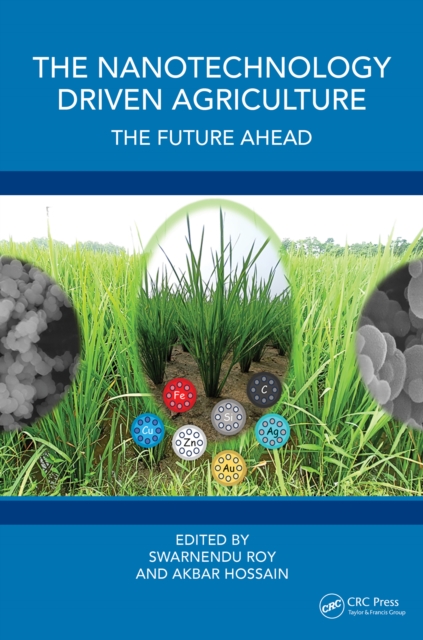
The Nanotechnology Driven Agriculture : The Future Ahead PDF
Edited by Swarnendu Roy, Akbar Hossain
Description
Nanotechnology is believed to accelerate our fight to sustain and enhance crop productivity for the ever-increasing world population. It has been reckoned as one of the safest and most cost-efficient techniques to boost crop productivity in the future. The ever-increasing state-of-the-art availability of various nanomaterials has allowed us to pursue their beneficial properties in agronomy. Nanotechnology will help minimize the dependency on chemical fertilizers and existing crop production techniques that have already been exploited to their maximum potential. Therefore, in the present context, it could well be realized that agriculture will be driven by nanotechnology in the future.
This book focuses on the application of nanotechnology for enhancing crop production through the application of nanofertilizers or nanocomposites. Several avenues of nanotechnology are beneficial in improving crop productivity in a sustainable manner, which has been presented in a comprehensive way. The book also delves into the mechanistic view of nanoparticle functioning and its role in stress alleviation. In addition, the book presents some recent insights into the application of nanotechnology for post-harvest management, stress tolerance and usage as nanobiosensors.
Broadly, the book will encompass the following advances in the field, distinguishing it from other published volumes. The salient features include:
* Role of nanoparticles in improving abiotic stress tolerance in plants.
* Role of nanoparticles in protection against pathogens and pests.
* Mechanism of nanoparticle-induced plant responses.
* Synthesis and modification of nanoparticles to enhance their biological efficacy.
* Prospects of nanofertilizers, nanoformulations, nanopesticides, etc., and their beneficial attributes.
This book, therefore, presents this emerging topic and the most recent innovations in this field for postgraduate students, researchers and faculty members working in the fields of plant science, microbiology, biotechnology, agricultural sciences, etc.
Information
-
Download - Immediately Available
- Format:PDF
- Pages:330 pages
- Publisher:CRC Press
- Publication Date:29/03/2024
- Category:
- ISBN:9781003858157
Information
-
Download - Immediately Available
- Format:PDF
- Pages:330 pages
- Publisher:CRC Press
- Publication Date:29/03/2024
- Category:
- ISBN:9781003858157






